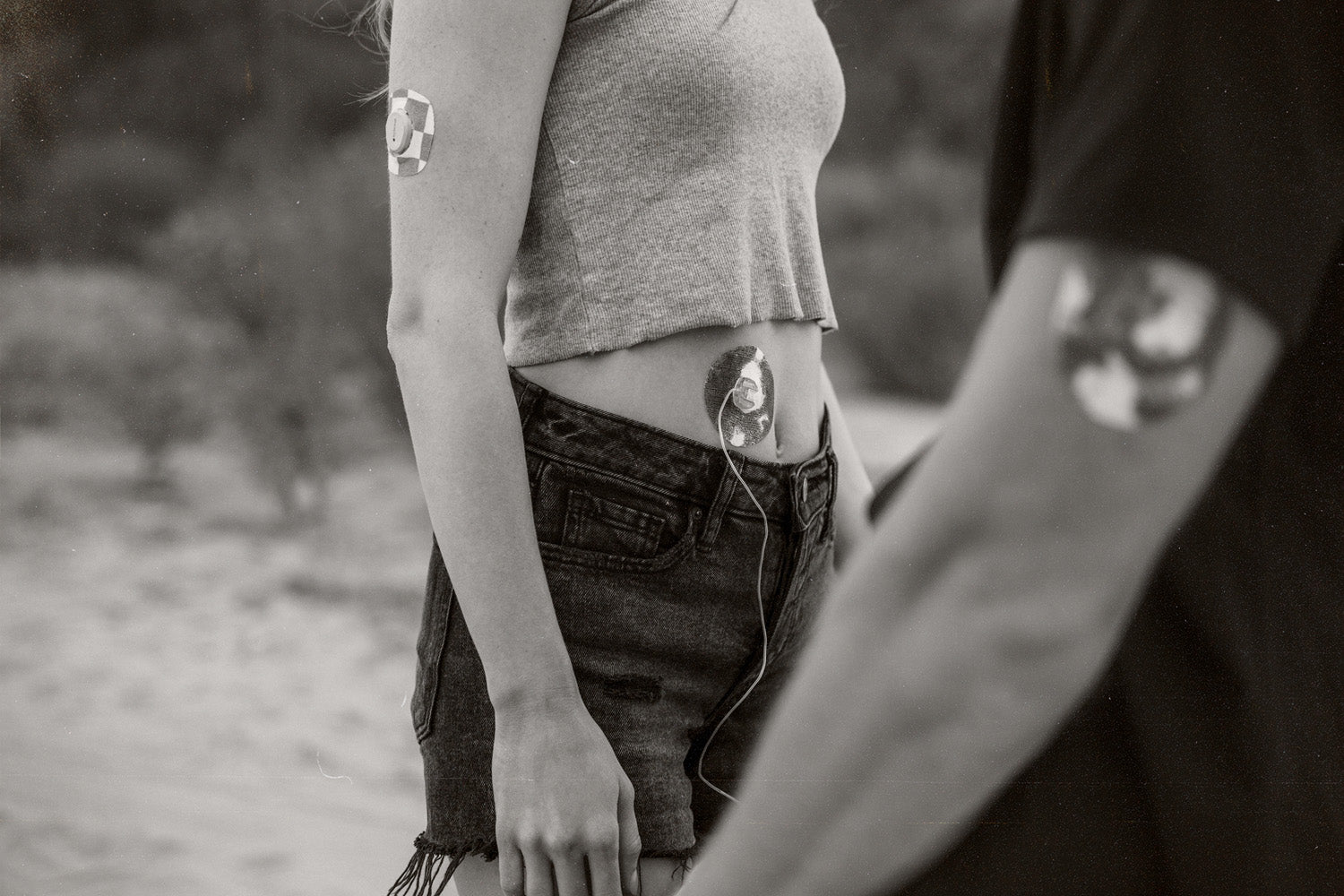
*Disclaimer: All content and information in this blog is for informational and educational purposes only.
If your partner has been diagnosed with diabetes, it’s normal to feel overwhelmed and unsure about how to best support them when dating. However, being a supportive care partner can make all the difference in helping people with diabetes manage their condition and improve their overall quality of life. In this blog post, we will explore tips on how to be a supportive partner to someone with diabetes by learning to communicate effectively, respect boundaries, offer emotional support, and being prepared for unexpected situations- you can be an important source of strength and encouragement for your partner. Let’s dive in!
Should you date someone with diabetes?
Deciding whether to date someone with diabetes is a personal decision that depends on your own preferences and level of comfort. Many individuals with diabetes lead a happy and fulfilling life, but it is crucial to comprehend the challenges that you may face as a potential partner and whether you are willing to take on that responsibility. Although many people with diabetes are self-sufficient in their management, having someone who understands their condition can be reassuring and comforting.
If you do not feel ready to take on the role of a support person for someone with diabetes, it is crucial to be honest and communicate your decision with them. This can help both parties manage their expectations and make an informed decision about whether or not to proceed with the relationship.
To those with diabetes who may be reading this, having diabetes does not mean that you are unworthy of a fulfilling and loving relationship. It may take time to find someone who is willing to accept and support you in every aspect of your life, but that person is worth the wait. Don’t give up the possibility of having a loving relationship with someone who values you for who you are.
What is it like dating someone with diabetes?
Dating someone with diabetes can be very similar to dating someone without diabetes. However, there are some parts of your relationship that may be different or require additional understanding and support. Here are a few things that you might experience while dating someone with diabetes and how to best support them:
How to support a diabetic partner?
Diet and Lifestyle Considerations
Diabetes management often requires individuals to make diet and lifestyle modifications in order to keep their blood glucose levels within a safe range. As a result, dating someone with diabetes may require flexibility and patience when planning meals and activities together. These factors may require additional preparation, but couples can still socialize, eat or participate in activities together.
Diabetes Medications and Technology
Managing blood glucose levels may require people with diabetes to take medication or wear medical devices, such as insulin pumps or continuous glucose monitors. Individuals with diabetes may need to carry medication or additional medical supplies with them, which can be a significant burden to remember. As a support person, it may be beneficial to assist in ensuring they have all the necessary supplies they need before leaving or offering to carry back-up supplies with you.
Emotions and Mood Changes
Fluctuations in blood glucose levels can impact someone’s emotions and mood. Fear, frustration, and anxiety are common emotions that can arise when blood glucose levels are out of range. It’s important to recognize that your partner isn’t intentionally being mean, but they may be struggling with the way their body feels if they lash out. As a partner, it can be helpful to ask about how they feel during these times to get a better understanding or inquire about how you can be supportive for them during these times. Sometimes the best thing you can do is give them space and time to feel better!
Emergencies with Diabetes
Individuals with diabetes may experience low or high blood glucose levels that can typically be treated at home. Low blood glucose episodes require ingestion of fast-acting carbohydrates, like a juicebox, while high blood glucose requires additional medication and hydration. In these instances, it can be helpful to grab a juicebox from the refrigerator and open it or invite them to rest while waiting for their blood sugar to return to range.
In some instances, extremely high or low blood glucose levels can lead to a medical emergency which may require you to inject glucagon or seek medical assistance. If your partner with diabetes experiences frequent extreme blood glucose levels that require medical attention, it may call for a more significant conversation as these occurrences can be a strain on both individuals.
Financial Burden
The cost of managing diabetes can be a burden on a person with diabetes and their relationships. The expenses may arise from health insurance coverage, pricey specialist appointments, or diabetes medication and supply costs. Providing financial assistance may be an option for couples in more established relationships. Alternatively, researching cost-saving resources and determining eligibility or coming up with budget-friendly date nights can also help alleviate the financial strain.
Despite these potential experiences, dating someone with diabetes can be a positive and rewarding experience as you work together to manage the condition and maintain a healthy relationship. It's important to communicate openly with your partner, be understanding of their needs, and offer support when needed.
To hear from a couple who has been managing diabetes in their relationship for the last 4 years, listen to Keeping it 100 Radio: Uncensored Diabetes Conversations- Episode 84. Your host, Lissie Poyner, sits down with her fiancé for an intimate discussion about what dating with diabetes was like early on in their relationship, how he shows support and consideration, and their engagement story!
Available now on Spotify and Apple Podcasts.






























